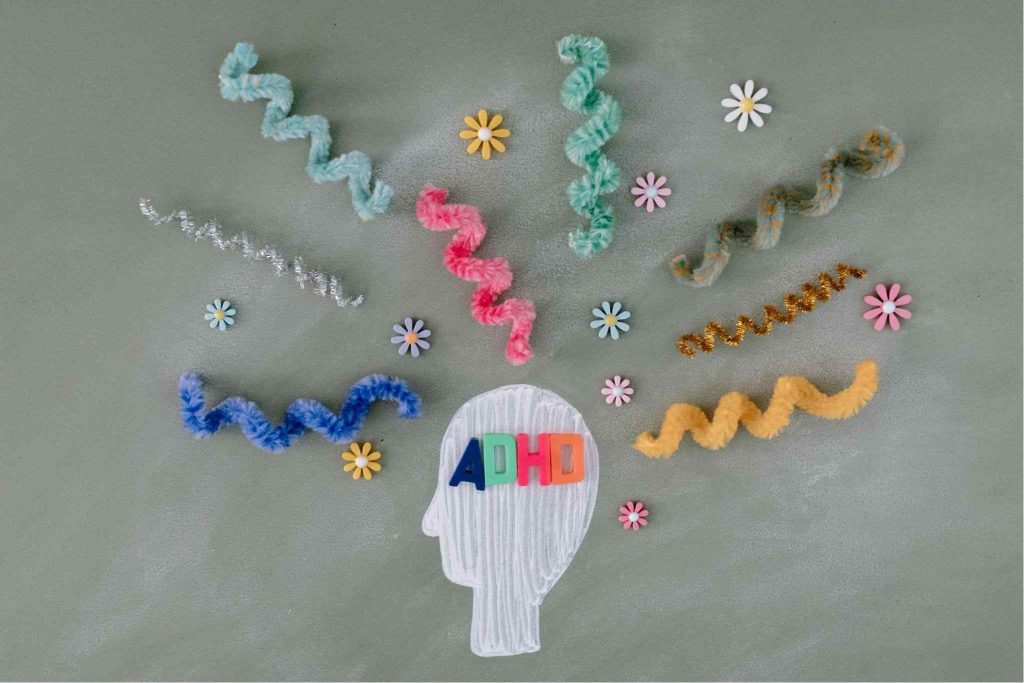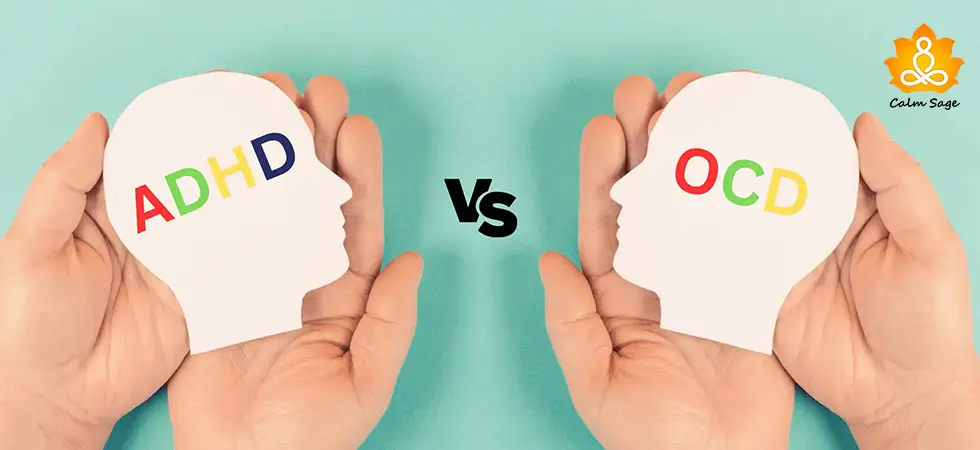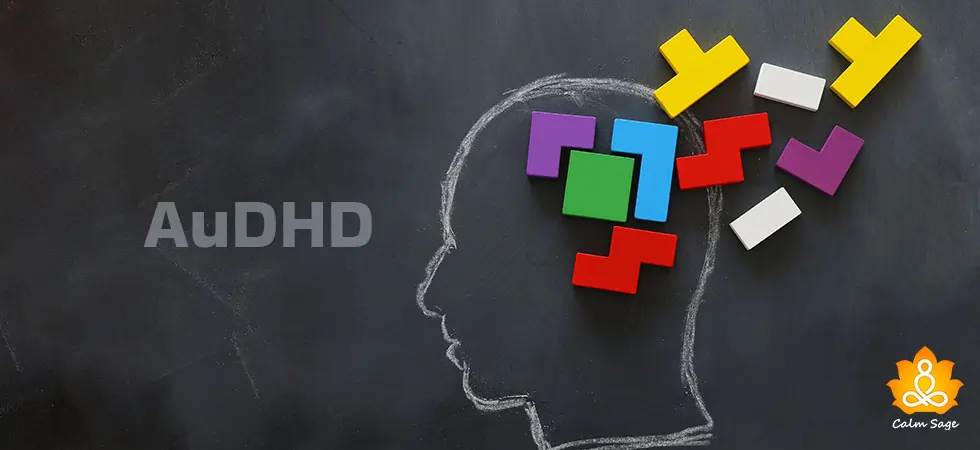Does ADHD Get Worse With Age? Or Does it Get Better?

ADHD is a neurodevelopmental disorder that is diagnosed in the early years of human life. ADHD or Attention Deficit Hyperactivity Disorder symptoms begin during childhood and may cause interruptions in school, social, and even professional life when ADHD is diagnosed in adulthood.
While it is believed that children may outgrow the symptoms of ADHD in adulthood but it might not be true in many cases. Did you know that 1 in 40 adults is diagnosed with ADHD? It is also believed that the prevalence of ADHD is more in men than women. In any case, the treatment of the disorder may vary according to the symptoms and individual traits.
Some common symptoms of ADHD include difficulty paying attention, disorganization, hyperactivity, impulsivity, and more. Let’s take a look at how ADHD symptoms affect people in different age groups.
So, Does ADHD Get Worse With Age?

ADHD symptoms do not worsen with age, however, it is believed that adults may experience a fluctuation in the symptoms as they age. ADHD is diagnosed with two main symptoms; hyperactivity and impulsivity and these two symptoms are signs of developmental delays caused by differences in the brain. So, even though your symptoms may improve, the differences in the brain may remain.
As medical sciences have advanced, it has come to light that ADHD can be diagnosed in adulthood as well where it was previously believed to be a childhood disorder.
ADHD may cause difficulties in areas of life such as;
- Relationships
- Professional life
- School or academic performance
- Impulsive or risky behaviors
Is There An Age Where ADHD Worsens?
The typical age when ADHD is diagnosed is 6 years old and symptoms appear when the child is around 3 or 4 years old. When ADHD is left undiagnosed, then the key symptoms of the disorder present themselves when the child is around 12 years old.
ADHD may peak during childhood according to a survey that found 50-80% of children were diagnosed with ADHD. Some people have also found that they outgrow the symptoms of ADHD and may even show a change in symptoms over the years. All due to coping mechanisms and treatments for managing the symptoms.
It is possible to show improved signs of ADHD in adulthood, but the severity of the disorder plays a major role in this experience. In adulthood, it may lead to the development of other disorders such as anxiety disorders, mood disorders, substance use disorders, sleep disorders, and more.
Can ADHD Change With Age?
Yes, ADHD is believed to change as you transition into adulthood. Here are three areas where ADHD symptoms may change;
- Hyperactivity
- Inattentiveness
- Hyperactivity and inattention, combined
Nevertheless, hyperactivity symptoms when it comes to ADHD may improve with age and may also be replaced by symptoms related to restlessness.
Impulsivity may also improve with age, but at the heart of it, it may remain. The only difference is that the consequences of the symptoms may change. For example, you may engage more in high-risk or adrenaline-rush activities, substance use, or even accidents.
One symptom that may remain in all ages is inattention or difficulty focusing. Inattentiveness or attention span may improve a little bit as you age, but it may still make it harder for you to focus at work or school.
How To Manage ADHD with Age?

While ADHD is a disorder that may change as you age, there are chances that it’ll also raise other challenges as you navigate life. Here are some ways you can learn to manage ADHD as you age;
1. Work with a list: Make sure you make a list of things you need to do and as you finish them, tick them off, so that you’re organized and less overwhelmed.
2. Break down your tasks: If there are bigger tasks planned, then see if you break them into manageable chunks. This will allow you to reduce stress levels and improve your focus.
3. Set realistic goals: make sure the goals you set for yourself are realistic and attainable.
4. Relieve stress: Learn to manage your stress daily by practicing effective stress management techniques. You can try meditation, journaling, and exercising as ways to reduce stress.
5. Allow yourself to ask for support: If you think that your ADHD is worsening or is making it hard for you to manage your daily life, allow yourself to ask for help from loved ones.
6. Seek therapy: A professional therapist can help you develop effective coping strategies to help you manage your ADHD symptoms and areas where they affect the most.
Get 20% Off on Betterhelp Appointment
7. Follow a routine: As much as you can, try to stick to a routine. Having a routine can also help you manage your symptoms.
8. Use apps where you can: Focus apps or apps developed for ADHD can work as great tools to help you manage your symptoms. You can use planner apps and timer apps too.
9. Learn to stay organized: Disorganization is one of the most common symptoms of ADHD that stays even as you age, so to manage this, you can learn to organize your space and keep your things in one place.
10. Keep going: Even though it may seem challenging to manage your ADHD with age, you need to understand that it’s still a treatable condition. With the right diagnosis and treatment, you can stay on track and manage your symptoms without them affecting your daily life too much.
Wrap-Up
In many cases, ADHD is said to continue as you transition into adulthood. However, instead of worsening with age, people with ADHD may experience a change in how the symptoms present themselves. Among all the main symptoms of ADHD, hyperactivity, and inattentiveness seems to be the most common even as you age.
Like other neurological disorders, ADHD is a complicated disorder where the symptoms may vary according to individual personality and severity. Even so, if you suspect yourself or a loved one with symptoms of ADHD, it is recommended that you speak to a professional for a proper diagnosis and treatment options.
Even as an adult, it is possible to be diagnosed with ADHD and even then, with the right strategies, you can learn to manage the symptoms.
I hope this blog helped you understand how ADHD gets worse or better with age and how you can manage it in the later years of your life. For more, you can write to us at info@calmsage.com or DM us on social media.
Take Care!




















